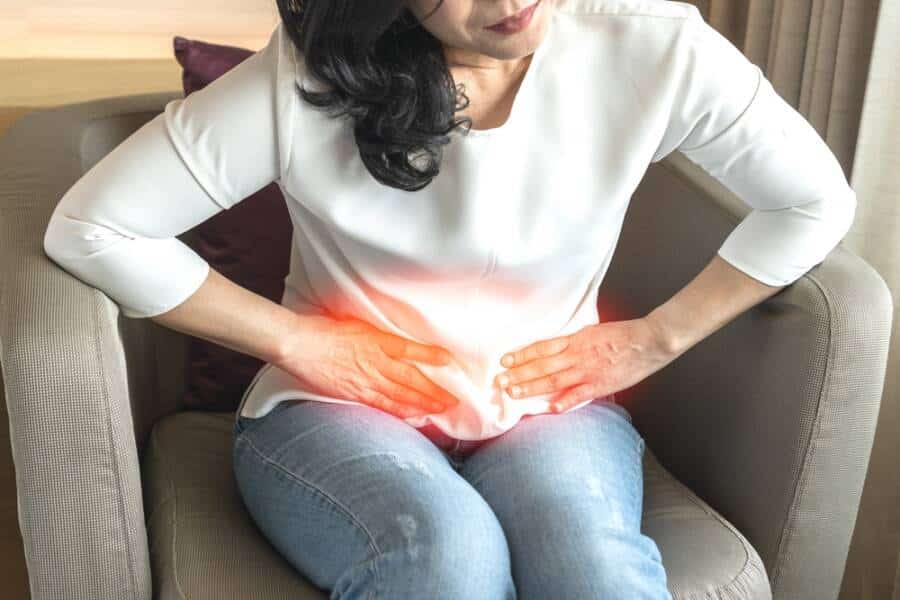The extreme heat could be quite troubling in more than just one way. Poor digestion is sometimes one of the most common issues faced by plenty of people during summer. Poor diet, lack of water in the body, and your overall body heat contribute to indigestion in many cases.
Every single year, summer brings with it a wide array of health issues like heat exhaustion, viral illnesses, and stomach issues. During periods of excessive heat, our body diverts its energy from digestion towards keeping our body temperature low.
So the digestive process might slow down. Then there’s also dehydration, which is quite common during the summer season. There are also high chances of consuming spoiled and contaminated food during summer, which could further upset your digestive process.

Dehydration affects digestive health
You’re probably very aware of the risk that dehydration can impose on your health. It can cause symptoms like headaches, fatigue, and dizziness. However, you might not know that inadequate hydration might affect your digestive system, too.
As part of a very normal process, “the gut absorbs a lot of water from both the things we drink and all the secretions that happen in our upper gut.” as Chris Damman, MD, a gastroenterologist and clinical associate professor of medicine at the University of Washington Medical Center in Seattle and editor-in-chief of Gut Bites MD explained.
Secretions that are made in your upper GI are mostly made of water, which can also include saliva, stomach juices, and substances secreted by your liver and pancreas. On a hot summer day, chances are you secret a lot of substances through your liver and pancreas in lesser amounts, because your body struggles to hold onto those fluids.
This applies even more if you inadequately replace the water you lose through sweating. When you experience a dry mouth in the summer heat, that also means you have lower amounts of other secretions in your upper GI tract.
The overall effect of all this is that if you are dehydrated, your stool will be less water-laden. This can also slow down your transit time, which also contributes to constipation. A slower transit time through your gut could also mean that you feel full for a longer time after eating, which can be quite uncomfortable for some – especially if you’re sweating through outdoor activities.
Sometimes it’s easier said than done, but the solution to avoiding hydration isn’t all that complicated. All you need is to drink more water or any other nonalcoholic beverage. Even if you have a sense of thirst that’s not pulling you in, you want to make sure you are still getting enough fluids on a regular basis. An important sign you’re enough hydrated is to pee every three to four hours.
Summer dietary changes affect your gut
Fortunately, it’s not all bad news for your digestive tract when summer comes – some dietary changes that are associated with warm weather can have a positive effect on your gut health. Especially during summer, people generally consume more fruits and vegetables, because they are far more accessible and affordable.
Also more yummy. Fruits and vegetables are excellent sources of dietary fiber, which definitely helps promote healthy bowel movement. Lots of people see the benefit in regularity from consuming such foods.
Another advantage of getting fiber from fruits and vegetables is that these foods have a wide range of beneficial nutrients, along with water that can also help you avoid dehydration. If you take a fiber supplement but you don’t drink enough water throughout the day, all the extra fiber might contribute to constipation.
It’s a good idea to drink water or other types of beverages that can keep you hydrated, but you need to make sure you know how a specific beverage could affect your digestive system before drinking it as you travel or even at an event where restroom access might be limited. Some sports drinks can easily cause digestive upset and even diarrhea in some people.
Preventing Foodborne Illness during summer
Outdoor summertime gatherings such as picnics and barbecues could be a ripe environment for foodborne illness, especially since foods that should be kept refrigerated might be sitting out in the sun for longer period of time.
Many types of bacteria can cause food poisoning and it rapidly multiplies at warm temperatures, everybody knows that. The number one symptom of foodborne illness, abdominal cramps, vomiting, and diarrhea within hours of eating contaminated food, are generally caused by a toxin released by these bacteria.
Even if you try to reheat contaminated food to kill that bacteria, the bug might be gone, but the toxin remains. And those toxins cause the symptoms. In more practical terms, this basically means that you should try to keep the cold foods cold, or at least below 40 degrees Fahrenheit.
At the same time, you should keep the hot ones hot, and if not, eat them right away. One idea for a picnic or gathering is to put the main serving bowl for foods such as potato salad or pasta salad inside a bigger ice-filled bowl to effectively keep them cold.
You can also take a food thermometer to monitor the temperature of your dish. As soon as the food gets warmer than the recommended storage temperature, it should be easily eaten in the first two hours, or within one hour if the air temperature is above 90 degrees Fahrenheit.

Keep your gut healthy while you travel
Summer travel can be quite exciting and invigorating, but it can also get disruptive to your digestive system in a wide number of ways. Along with traveling, especially across different time zones, your sleep patterns can get disturbed.
This type of disruption might ultimately affect your gut health. Other travel-related factors that could potentially affect your bowel regularity also include sitting for too long in the car, airplane travel, but also eating restaurant foods that might prove to be lower in fiber than your regular ones.
You might also not drink enough water, as you generally would if you want to avoid stopping at every single restroom on your way. This can also contribute to constipation.
For instance, if you go camping or hiking somewhere where you’re not sure if the water supply is well-treated to kill pathogens like bacteria, then you should try to disinfect the water before drinking it. The best way in which you can do this is to boil it for one minute, then let it cool down.
Other options can also include chemical disinfectants and portable filtration systems, which might vary in their effectiveness at eliminating different pathogens. Whenever you get the chance, try to do some sport, or at least go for a walk, even if it’s only for a couple of minutes.
We all know that exercise improves regularity, and it’s one of those things that doesn’t automatically apply in many people’s lives anymore. That goes for when you’re not traveling, either, especially if it’s way too hot outside for comfortable physical activity. In this instance, you should make a habit of going for a walk early in the morning or even use exercise equipment that you have at home.
If you found this article useful, we also recommend checking: 7 Ingredients in Supplements to AVOID at All Costs






